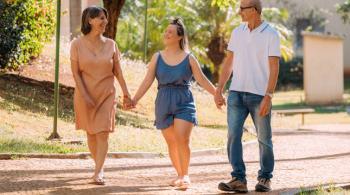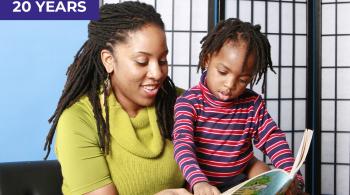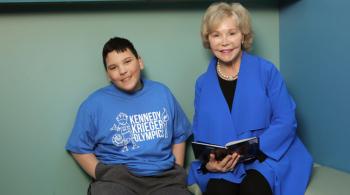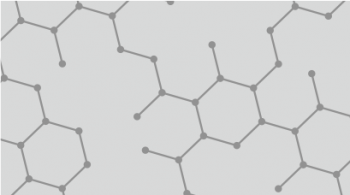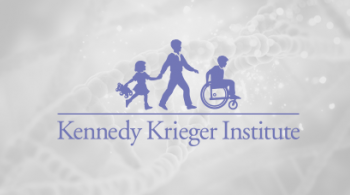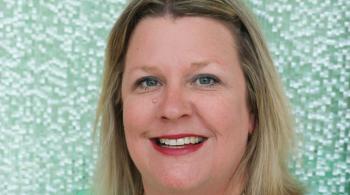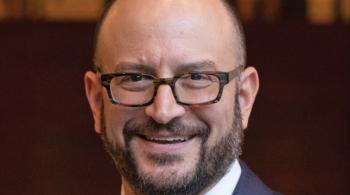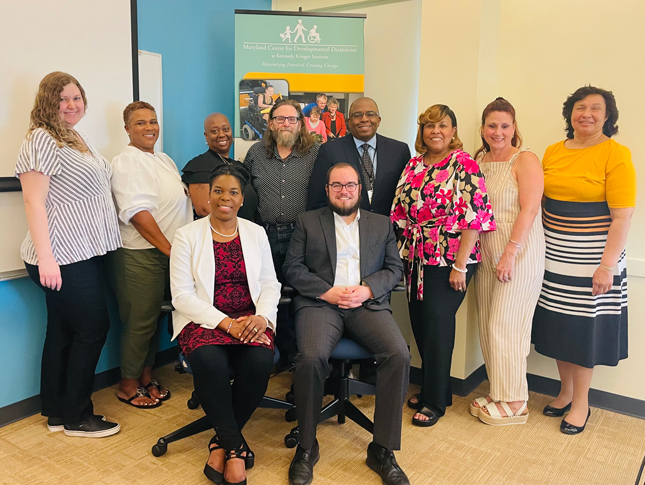
In spring 2020, Kennedy Krieger Institute’s Maryland Center for Developmental Disabilities (MCDD) launched the comprehensive Disability, Mental Health, Inclusive Faith Support and Belonging: A Training Collaborative. The project seeks to promote inclusive practices in faith communities across Maryland, train faith leaders to improve outreach and interventions, and create better health outcomes for people with disabilities and their families.
Dr. Mirian Ofonedu, PhD, LCSW-C, MCDD’s director of training, believes the program can improve quality of life for people with intellectual, developmental and other disabilities and their families by addressing an important gap: the lack of inclusive faith support.
“Creating inclusive spaces in churches, mosques, synagogues and other faith spaces contributes to health and wellbeing,” says Dr. Ofonedu. “Everyone has dignity and rights in all spaces, including people with disabilities. [The] faith community is where people who may not know each other come together to worship, share and work together. It is a space that goes beyond one’s ability, socio-economic or marital status, level of education, nationalities, race, gender, ethnicity or profession.”
Research on Inclusion in Faith Communities
Inclusion of people with intellectual and developmental disabilities (IDD) and their families in faith communities is critical. Individuals and their families go to these communities in hopes of finding a welcoming atmosphere. However, research shows that faith spaces often fail to meet their needs.
- Parents of children with IDD are often hesitant to bring their children into faith spaces for fear of how they will be received (Richie et al., 2014).
- Inclusive teachings and behaviors are often not practiced in most places of worship. This adds responsibility for parents of children with IDD to seek additional resources for religious teaching, leading to their absence from worship services (Slocum et al., 2016).
- Most religious establishments do not require faith leaders to attend formal training on how to fully include and support individuals with IDD and incorporate accessible materials and activities into their programs (Richie et al., 2014).
- In a preliminary survey of inclusive practice, 73% of faith leaders reported little or no formal training on disability-related information during their formal education (Griffin et al., 2012).
“It’s disheartening to hear that our families raising children with disabilities are being excluded in their faith communities when we are all calling for inclusive spaces in the community,” says Dr. Ofonedu.
Needs Assessment Findings
The MCDD’s Faith Community training initiative began with a virtual Faith Leader Forum held in May 2020. Between summer and fall of 2022, the MCDD conducted a faith and disability needs assessment, in collaboration with the Maryland Department of Health’s Office of Faith Based and Community Partnerships and the Faith Community Commission of the Governor’s Commission on Suicide Prevention. The survey question paths were based on the following:
- Feedback from faith leaders, individuals with disabilities and their families.
- The Six Ps to Inclusive Practice (Person, Practice, Place, Program, Policy and Philosophy), a framework developed by Dr. Ofonedu.
- Literature review on faith, disability and inclusive practice in faith community.
More than 255 people, including faith leaders, people with disabilities and their families, completed the survey.
The results, which Dr. Ofonedu shared with Maryland faith community and disability service agency leaders earlier this year, are informing the disability-focused training needs of Maryland’s faith communities. Early findings based on survey results show the following:
- Among respondents in Maryland, only two out of 27 members with a disability reported holding a leadership role in their faith communities. Parents of individuals with a disability also reported holding fewer leadership positions in faith communities.
- There is a need for faith communities to have better written guidelines on inclusion.
- Faith leaders expressed a desire for knowledge and training on how to connect with people in their communities with disabilities.
- Several themes emerged from the comments submitted by respondents. They include feelings of exclusion, isolation and rejection, lack of knowledge and training, negative attitude and beliefs, poor sense of belonging, lack of opportunities, unaccountability, poor policies and guidelines, and lack of inclusive community.
Experiences shared by survey respondents underscore the glaring need for this innovative outreach to faith communities.
Plans for MCDD’s Disability Ministry Ambassador Program
The MCDD has created a planning advisory board for the project that includes faith leaders, people with disabilities, parents of children with disabilities and service providers. While the target population for the training is faith leaders, Dr. Ofonedu believes it is essential to include the voices of people with disabilities and their families.
“Awareness and meaningful collaboration is on our radar,” she says. “In creating our inclusive faith support training program, we want to draw on what exists and not re-invent the wheel.”
Upcoming plans include:
- Focus groups with people with disabilities, family members, faith leaders and service providers to inform the structure, content and implementation of inclusive faith support training.
- Creating an inclusive practice training video for Maryland’s faith community.
- Establishing an Inclusive Faith Support Ambassador Leadership Training for faith leaders.
- Collaborating with University Centers for Excellence in Developmental Disabilities Education (UCEDDs) in other states to develop a national network on inclusive faith support.
- Recruiting and training ambassadors to work with faith leaders across Maryland to create inclusive faith communities.
On April 18, Dr. Ofonedu launched a kickoff meeting for the Faith Community Learning Collaborative (FCLC) with Maryland faith leaders. The group worked to develop strategies for improving inclusive faith support for people with intellectual and developmental disabilities and their families in faith communities. On May 12 and June 9, Dr. Ofonedu hosted full-day meetings with the FCLC to continue their important work.
Get Involved
- Contact Dr. Ofonedu at 443-923-9555 or Training.MCDD@KennedyKrieger.org to participate in the training or discuss how a faith community can receive training.
- Participate in the MCDD Faith Community Learning Collaborative for Faith Leaders, a four-session virtual series. Click here to reserve your spot today!
- Refer your faith community to receive an inclusive practice training or for your organization to sponsor an inclusive practice training for a faith community in Maryland. Click here to learn more.
- Visit the Faith Community Project website for inclusive practice resources, including a guide on Becoming Anti-Ableist.


